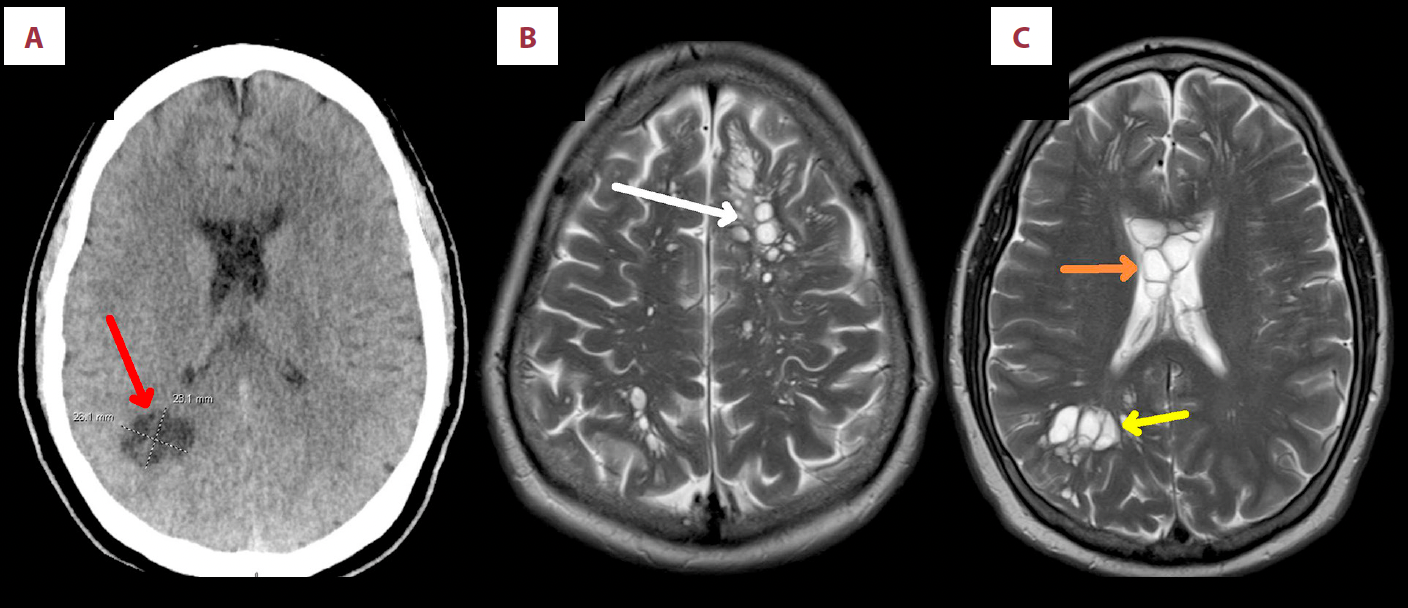US man gets parasitic worm in brain likely from eating undercooked bacon
Scan of man’s skull revealed multiple cysts deep within brain white matter
A middle-aged man in the US with a history of consuming undercooked “soft” bacon for years has been found to have tapeworm larva infecting his brain, doctors reported in a new study.
The 52-year-old man with a history of migraines went to the doctor as his headaches became more frequent and severe and unresponsive to usual treatments.
His pain also became worse across the back of his skull, according to the study, published last week in the American Journal of Case Reports.
A CT X-ray scan of his skull then revealed multiple cysts deep within his brain in the white matter part of the organ that offers an insulating function to nerve cells.
Further scans revealed more cysts in the front and middle part of his brain’s outer layer, which led to doctors confirming that he had neurocysticercosis, which occurs when cysts of the tapeworm Taenia solium embed within the nervous system.
Humans typically become infected with tapeworm cycts when they ingest water or food contaminated with the parasite.
Infection of this kind is known to be increasing in frequency in developed countries due to increased access to travel.
Its severity could range from being symptomless to life-threatening, largely depending on which parts of the body the cysts infect.
The most common symptom usually is seizure, which is seen in 80 per cent of cases, according to the study.
Treatment generally involves the use of anti-worm drugs or surgery or a combination of methods.
“Historically, developed countries have not been major hotbeds for infection due to high scrutiny of food safety and sanitary standards,” researchers say.

One of the peculiarities of the man’s case was that his exposure history was “unremarkable,” according to the doctors.
The patient lived in the US and had no recent travel to endemic countries or contact with pigs.
He had also not visited a farm, and lived in what researchers call a “modern home” with good sanitation.
However, he had a habit of eating undercooked bacon, by which he would have developed neurocysticercosis, doctors say.
They suspect the patient may have got infected by the tapeworm infection due to his eating habits and by not properly washing his hands after using the bathroom.
The patient survived the worm infection following treatment with anti-parasitic and anti-inflammatory drugs.
Doctors call for considering neurocysticercosis on differential diagnosis when they evaluate acute changes in migraines.
Join our commenting forum
Join thought-provoking conversations, follow other Independent readers and see their replies
Comments